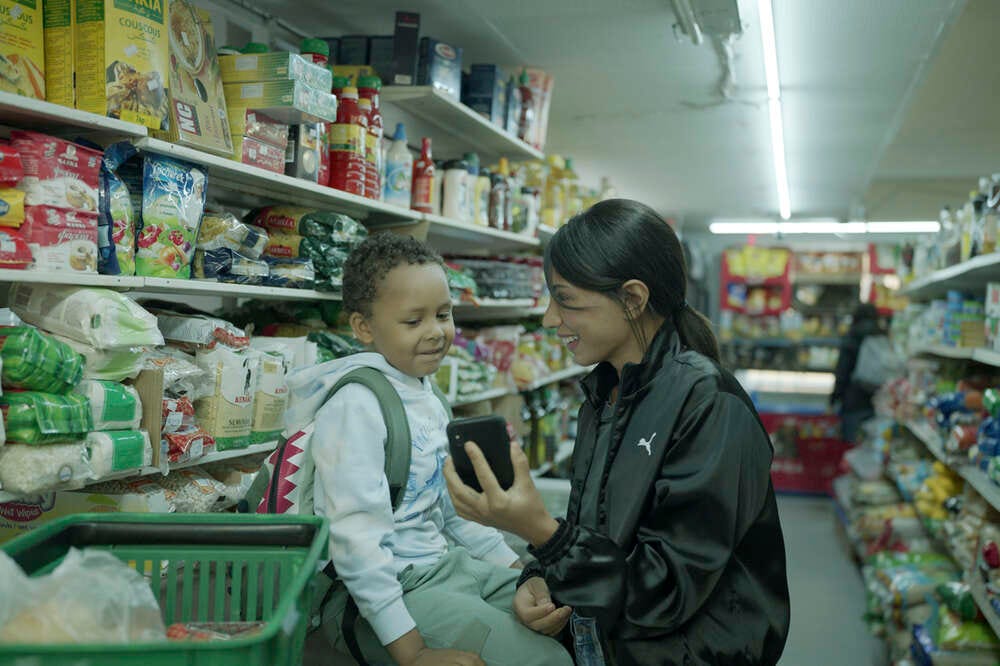Review: Snabba Cash
This gripping drug drama captures the new Sweden, one that's starting to look a little like America once did.
America has long been home to stories of the voraciously ambitious. The rags to riches fables occur both in our fictional narratives (Gordon Gecko) and real ones (Jordan Belfort). But as America faces the natural endpoint of its individualist avarice, the “rags to riches” stories are more often inverted, with just as few steps before a plunge into poverty.
Sweden is experiencing a different arc. While neoliberalism was seeded in the US and UK, where Reaganomics and Thatcherism gutted the public sector across the 80s, a strong left wing in Sweden did the opposite. Taxes on high income individuals and their assets enriched a state that in turn bolstered public welfare programs, establishing Sweden as one of the most equal societies in the world across a number of metrics. That’s no longer the case.
In the 1990s the corporate tax rate in Sweden was 52%. Today it’s 21%. Decreases in capital taxation and a more tight-fisted state have created a 1% richer than America’s. Affordable housing is at a premium. A steady decline in social spending, along with a political shift to the right, has usurped the nation’s egalitarianism, resulting in friction between the “Nordic model” of socialist democracy and an aggressively growing wealth gap. Along with a tech boom and the mushrooming of finance capitalism, this has facilitated a sea change in Sweden's economy, culture, and the opportunities both enable.
It was during this transformation Jens Lapidus’ Stockholm Noir trilogy was published, beginning with the novel Snabba Cash in 2006. The title translates to “quick money” and the nation itself had the same view in mind: looking to attract more investment it abolished its famous wealth tax in 2007. Meanwhile, Snabba Cash became one of the fastest selling books in Sweden’s history, detailing a fantasy of an economic underworld of hard partying Serbian immigrants, drugs, and a white Swede who finds himself among them. More novels followed, as well as a number of movies. In the original book the characters quote the 1987 American film Wall Street. In the latest adaptation, a six episode miniseries on Netflix, the characters don’t need to look beyond Sweden’s borders at all.
At its heart, it’s a thrilling drug drama. There are turf wars. There are stacks of cash and heads smashed until payment is rendered. There’s a really sick soundtrack. From the high flash photography of its opening credits (reminiscent of early aughts party photos) to its incredibly good looking cast shot with the exact right balance of steady and handheld cameras, the show is undeniably cool. But it's the stakes that make the series compelling. It’s a very different show than its pulpy source material.
The office of startups where we meet Leya (Evin Ahmad), the central protagonist, is maze-like. Invoking lab mice, developers work in glass-walled box shaped rooms that a group of touring VCs peer into. Leya isn’t a product development mouse in a startup incubator maze. She’s the one giving the tour. Leya wants her startup to be Sweden’s next “unicorn”, a privately held tech company with a valuation of a billion dollas. Her ambitions aren’t farfetched. After Silicon Valley, Sweden has produced more unicorns than anywhere else. You’re probably already familiar with many of them, like Spotify, Soundcloud, and Klarna. Sweden's private sector still benefits from a strong safety net and government investment in tech, as well as quality public education. Today Stockholm, a city of less than a million people, is home to over 10,000 startups.
Leya’s lucky break comes from tech mogul Tomas Storm. He reads like his American counterparts, down to the California style vacant spirituality of the “silent retreat” he holds a meeting in. Leya, however, is unique to modern Sweden. A Kurdish waitress, she has healthcare, education for her child, and decent housing, no matter what happens to her company. For a low income single mother in America, developing a tech company on the side wouldn’t simply be a matter of entrepreneurial will. But for Leya, it’s increasingly also a matter of urgency. The majority of Sweden’s labor force, and 70% of the nation’s economy, remains in the service industry. Much of that industry, like Leya’s kabob shop dayjob or the bodega the other characters frequent, are now immigrant run businesses facing a rising cost of living and growing hostility towards them. The lesser discussed feature of Nordic democratic socialism is that it’s a lot easier to garner support for a collectivist society when you identify with the collective. Over the last two decades Sweden’s population of foreign born residents approached 20%, almost double that of its neighbors.
Sweden’s largest immigrant groups are Kurdish, East African, and Syrian, and these are the groups represented within the show. They’re shot in narrow interiors; kitchens, corridors, basement headquarters, truck beds, coming in and out of shops and backs of restaurants, climbing stairs of public housing projects. Occasionally, the main characters gaze out over their city from project balconies or rooftops.
In contrast, white people are rare, in more high end surroundings and shot wide. The series does include a long suffering white father whose child is taken in by gang violence and drug slinging. While sympathetic, it’s the least compelling storyline. One can’t help but wonder who insisted on the inclusion of an innocent white family disrupted by proximity to urban crime and an immigrant community. Still, the show manages to avoid being a right wing dog whistle by offering its nonwhite characters real arcs.
When Leya isn’t confronting billionaires and gang leaders, she flexes literal muscle. She trains in the gym, swings a kettlebell in her apartment, hauls bags of trash and tosses them with ease at the kabob shop. She operates with the same agility in both worlds she exists in. It’s one of many smart choices by the writers. Not only does it tell us exactly who she is, it indicates the permeability of the borders between those places. She doesn’t have to code switch. When Snabba Cash goes on to demonstrate just how much the street drug trade and startups have in common, the comparisons feel earned rather than trite.
This symmetry guides the show. Its propulsive plot gives each character a storyline that extends from, and returns to, how Leya manages her ties. When Leya can’t trust the white VCs, the only other network available to her for funding is embedded in the violence of the drug trade. She gains access to a world of wealth, but she shoulders more dangerous precarity than anyone else in the boardroom. She’s the only one who arrives late to a meeting because she was sidetracked by an execution.
In the form of cocky VCs, uncompromising heads of supply chains, corporate stepping stones, lawyers, and programmers, the white Swedes exist primarily as figureheads of infrastructure. That allows for far more true to life storytelling, grounded in the experience of the main cast. As VC Tomas Storm says in an interview Leya listens to, “I am the system..I own the treadmill you’re all running on.” But Leya isn’t on a treadmill, she wants one of her own.
It makes sense that, before now, stories of economic underdogs and their ambition haven’t dominated Swedish culture the way they have in America. Until recently “Jantelagen” was part of the Nordic social code. In his paper Breaking the Law of Jante, Stephen Richard Trotter describes Jantelagen as “suspicion of those who dare to behave ostentatiously.‟ Commonly reproduced through a silence around money, it discourages individualist ways of thinking—particularly those suggesting a superlative view of oneself, the most or best of something. It’s politically useful for Americans to openly pursue personal wealth and believe it's the honest result of a fair competition. You have to believe being #1 is a good thing to avoid questioning why there can only be so few victors, or ask what happens to those that don’t win.
It was just as useful for Sweden’s national project of state centralized cultural homogeneity to code blunt conversations around money as rude. The egalitarian ideal was an admirable goal for the former kingdom (10% of its top 1% belong to a much older class of wealth, the nobility). But post globalization, in an influencer economy and the height of a tech boom, it’s no longer an attitude shared by newer generations. Like modern Swedes who grew up on a steady drip of luxury lifestyle content, the characters of Snabba have no qualms around money, except wanting more of it. They count cash in sheets, collect it in stacks, and never hold any without the thought of increasing it. There’s a rising moneyed elite, and as the 80s in America proved, only a brief window of time to join it. At the nexus of newfound opportunity for wealth and simultaneous economic precarity, every main character in Snabba Cash lives a double life. But not every character does so successfully. Eventually, each succumbs to the gravity of one world over the other.
If Snabba Cash is representative of the new Sweden, then it’s also representative of a country facing an identity crisis. In the last twenty years, anti-muslim sentiment, exported crude from America and refined in Europe, gave right wing nationalists everywhere a launchpad for gaining public support. Recent immigration, caused by Western destabilization of the Middle East, East Africa and a Syrian civil war, has become a flashpoint in the battle over Sweden’s pressing economic concerns.
After the 2018 election, Sweden’s moderates and progressives faced significant losses to neo nazis in the white nationalist Sweden Democrats party. Rather than address the nation’s organized racism, the moderates and progressives in government agreed to further reduce taxes and remove regulations on the housing market. They said it was the only way to break a political deadlock between the parties. As has been the case historically, rather than pulling the right towards the center, the concessions to the right have led to a loss of political power for the left. It was a losing strategy. The Socialist Democrats had enjoyed a stable run as the nation’s leading political party since the 1930s. This summer, after reneging on their promise to maintain support of rent control, the Socialist Democrats coalition government was removed from power in the nation’s first ever vote of no confidence.
Tech hubs Stockholm and Gothenburg haven’t experienced the real estate nightmares of the Bay Area, as Swedish housing is shielded from market fluctuation. But based on the most recent attempts at coalition building, if Sweden doesn’t manage to rehabilitate its left wing and halt the gains of the right, remaining rental housing regulation would be first to go—affecting almost 40% of the country. Can there be a “Nordic model” for tech entrepreneurship that not only competes with but is able to resist the cannibalism of Silicon Valley economic models? Or is Sweden too about to be consumed by one side of a competing identity? So far, its fate seems foreshadowed. In 2000 Sweden had the lowest wealth inequality of all the Nordic countries. By 2017 it had the highest.
Snabba Cash is what capitalism looks like for a population driven to escape the working class while they still can. In Sweden the free market retains the sheen of opportunity America lost a long time ago. Unlike the typical underdog, the nature of success in Leya’s world is complicated. It requires a comfort not just with risk, but with much greater expense than can be captured by profit margins. There are no wins without losses. The only resolution the show doesn’t reach within its first season is whether those wins were worth it. Perhaps the arc of Sweden’s shifting social order will eventually answer the same question.
Liked this ? Let me know by becoming a subscriber, or even supporting in kind through venmo @ayeshaasiddiqi






